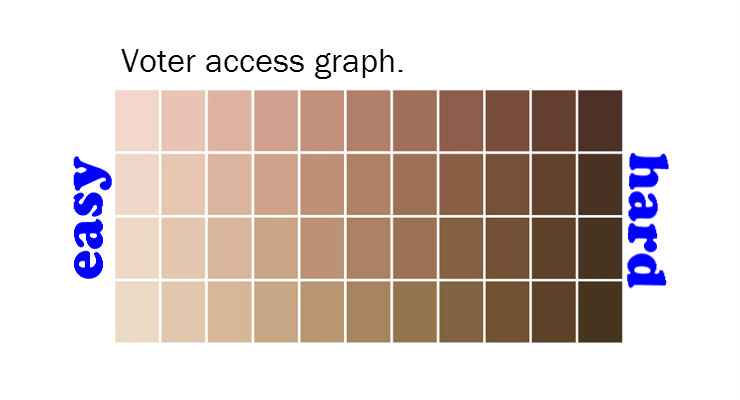
There is good news coming on this front from the local KTNV News:
Governor Steve Sisolak has signed a bill into law that removes barriers to voting on Native American reservations and colonies.
Assembly Bill 137 eliminates the requirement for tribal governments to obtain approval from the offices of local city and county election officials in order to establish polling sites in each election.
Under AB 137, county and city clerks will be required to continue to recognize established polling places within the boundaries of tribal lands in each election, unless otherwise requested by tribal authorities.
See the full story. The are various types of barriers facing voters including photo ID requirements, voting booth availability, the flexibility of poll hours, and the availability of time off from work with pay for voting. Some states even have financial penalties for the violation of deadlines or rules related to registration lists. Online voter registration, absentee voting, and early voting are some policies that clearly are shown to ease voting.
Some interesting related research was published in the Election Law Journal where authors Quan Li, Michael J. Pomante II, and Scot Schraufnagel outline an innovative voting index system in their report titled “Cost of Voting in the American States”. The index helps reveal amazing data on how voting barriers vary by state.
According to the index’s findings for 2016, “voting was most difficult in Mississippi and… voting was easiest in Oregon, which was the only state to make use of automatic voter registration in 2016”. The poor state of Mississippi’s democracy should be a surprise to no one. Mississippi has no online voter registration system, no same-day voter registration, and no early voting. Photo ID is required. As a result of state voting laws, this year “little more than 13 percent of Mississippi’s registered voters (245,100 people) cast ballots in the June Republican and Democratic primaries”.
Leave a Reply